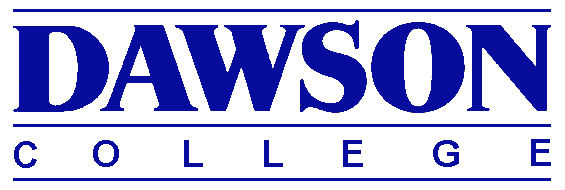
Final exam: Useful strategies
Click on any picture to expand
College rules for the final exam
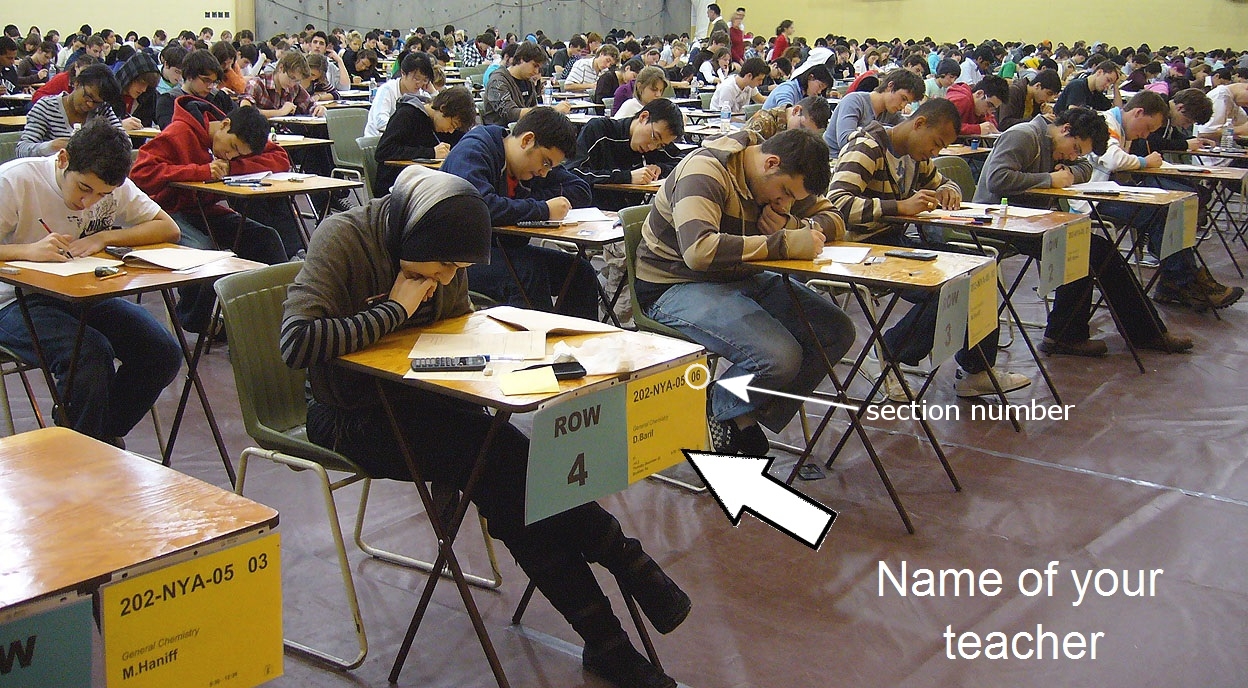
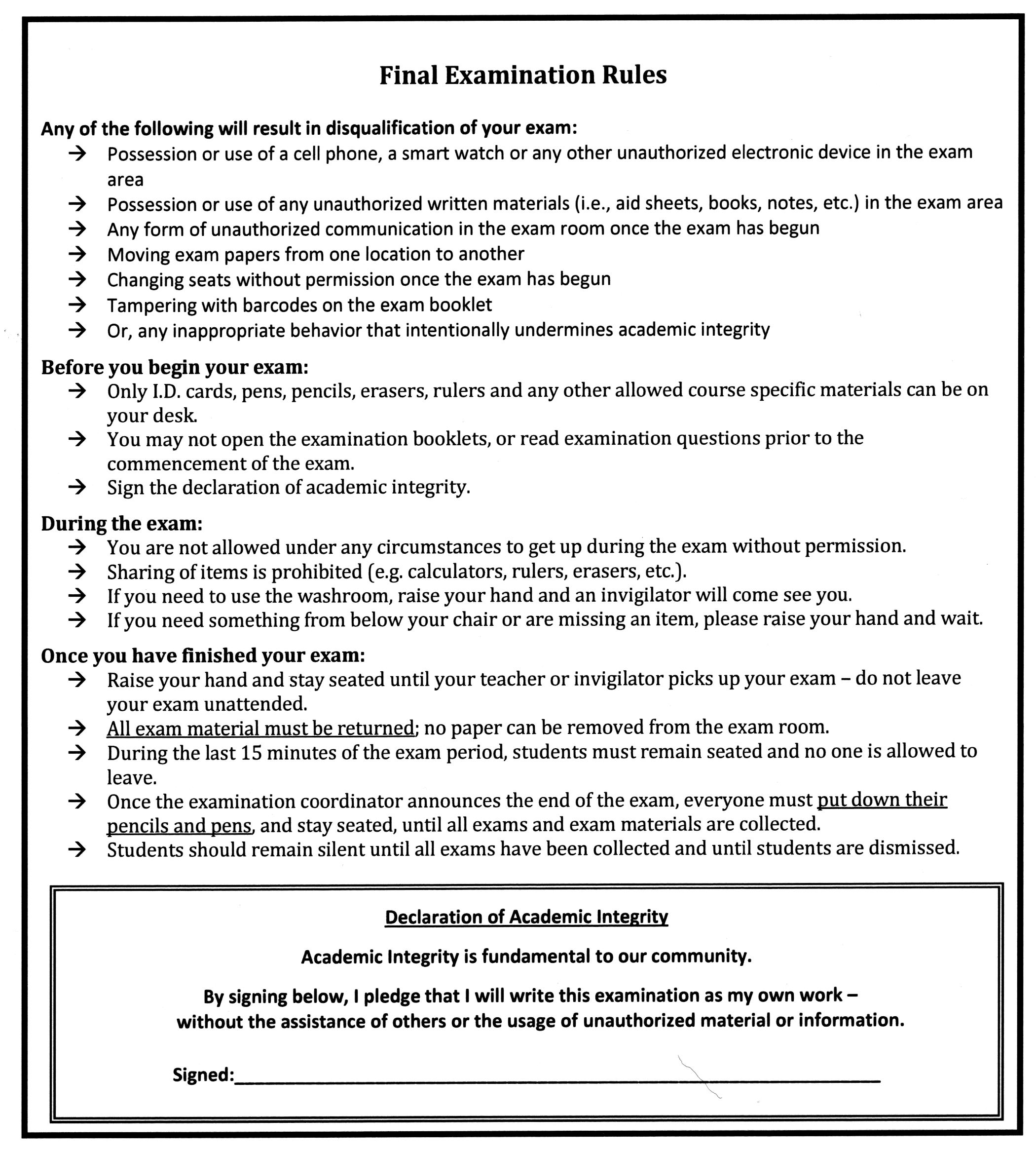
Sit down at the row starting with the name of your teacher + section number
- You will be video recorded by the college in the exam room for the duration of the test.
- The exams are numerically ordered, you are not allowed to move them.
- Students must remain in the same seat registered by the scanner. A student who changes place is automatically disqualified.
- The final exam is 3 hours long.
- If you are more than one hour late, you are not allowed to take the exam.
- You can go to the restroom. However, you must ask permission from your teachers or exam invigilators. Also, any lost time cannot be recovered.
- You can finish and submit your exam at any time, one hour after the exam starts. In this case, you are free to leave the room.
- 15 min before the end of the exam you are not allowed to quit the room; you have to remain seated until the end of the exam.
Cell phones or any electronic communication device (e.g. smart watch) are prohibited.
If you bring such a device into the exam room, you will be disqualified (mark = zero!)
Please, put them in your locker or see the person in charge (safe-box at the atrium).
Material required for the exam
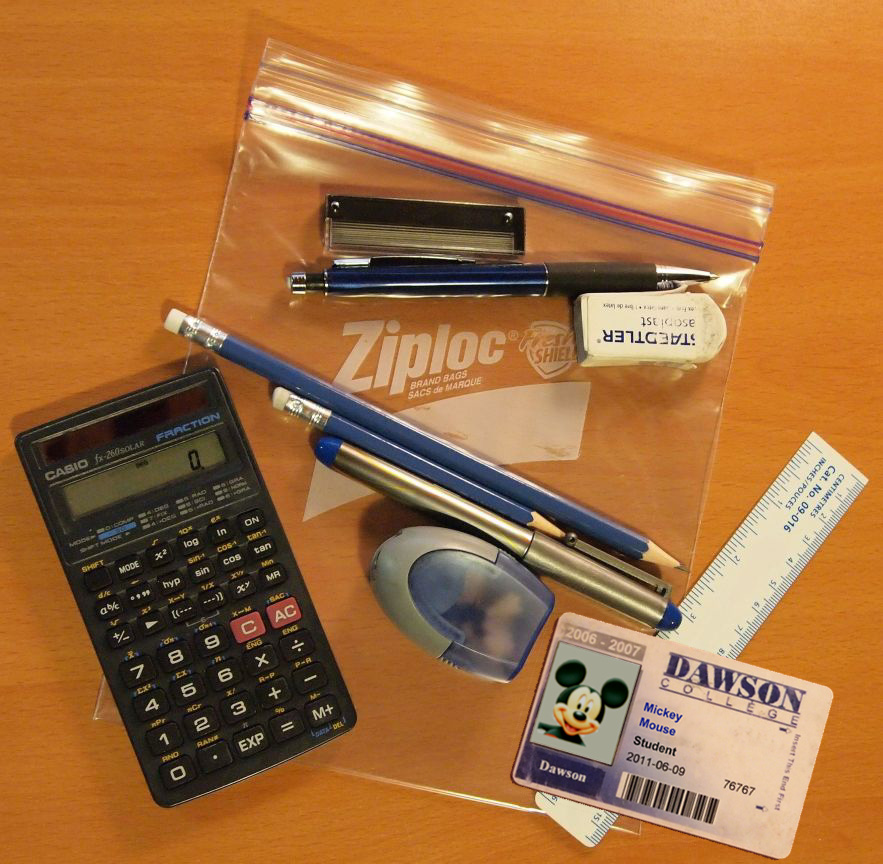
- Student's ID card (Dawson).
- Small ruler.
- Non-programmable scientific calculator.
- 2-3 Pencils with pencil sharpener + eraser.
- Mechanical pencil with extra cartridge.
- The exam can completely be answered in pencil, no need to write your final answer in pen.
- No pencil cases or calculator covers are allowed on the table. Any additional equipment is placed under your chair.
- You can bring a bottle of water as long as it does not have a label.
Some exam Strategies

FIRST OF ALL!
- Begin studying (revision) at least a week before the exam. You will remember much more if you study several times than if you "cram" the night before.
- You did all the assigned problems (see course outline) and understand them? Then consider yourself prepared!
- Set-up all your "exam desk stuff" the night before the exam in a Ziploc © bag.
- 3 hours is enough to complete the exam. Before the exam, take a deep breath, take a short walk, clear up your mind & relax...
Getting into the examination room
- Be there early! Come in advance. This way you won't be stressed by the possibility (frequent) of a bus/subway service outage.
- The exam always starts and ends on time and no extra time is never allowed for a final exam.
- The examination room is very large. Choose a location with minimal distractions and where you can clearly see the clock. First come, first served.
- There is a clock in the room for accurate timekeeping.
- Wear clothes that are comfortable and that can adapt to an important change of temperature (e.g. Have a pull on a T-shirt). In a room of 800 students with high ceilings, the temperature is unpredictable.
The exam start

1- Do a Brain dump
- Once the signal to start is given, write your name and student number on the first and second pages of the exam.
- Remove the last page of the exam (periodic table & table of data) flip it and do a ″Brain dump″
- Write any important information that you will need for the exam which is not printed on the exam; you cannot trust your memory to work at 100% efficiency.
- Once the information is out of your head, you do not have to worry about remembering it (less stressful).
Example of a "brain dump" from students at the final exam.
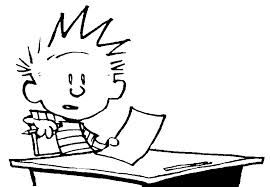
2- Do a "fly-through": Start your exam by first reading all the questions (without answering them).
- You want to map out the overall content and organization of the exam and you will gain a sense of where you are likely going to need the most time or energy.
- Read each question and make a ″star″ beside any question that you already know how to solve.
- Do not feel intimidated by the size of the exam. 3 hours allows you to do a lot more than you think and some questions are shorter than they seem.
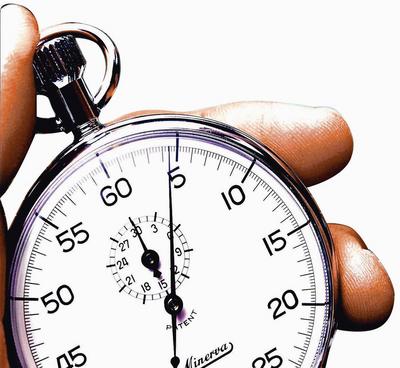
3- Manage your time
- You have 3 hours to complete the exam: 180 min/100 mark (roughly, 100 s/mark). Therefore, a 3 marks question should be answered in 300 s or 5 min.
- Every time you go over this time on a problem, that time has to come out from other problem.
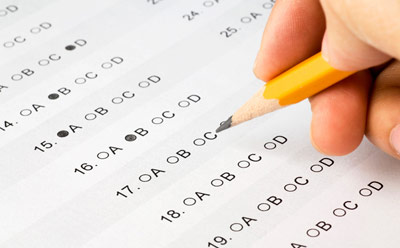
4- Start your exam by first answering the high mark ″star″ questions (the ones you know).
- It will help you to build confidence and you will get ahead on time leaving more time to manage difficult questions.
- Make sure you "correctly" understand the question. A single word can change the meaning of a sentence. Ask your teacher (present at the exam) if anything is unclear – they are there to help you.
- Multiple choice question: cover up the possible answers before you read the question and then choose the response which best fits your answer.
- When in doubt, trust your first guess.
- All the exam can be written in pen (and erased), so you can change your mind.
- The teacher will be keeping the exam in his office for a year.
ALWAYS
- Always get a good night of sleep before the exam and eat well.
- Allow yourself plenty of time before the exam and come to the College early: take a coffee and relax.
- Avoid students before the exam who might distract you (unprepared, negative attitude, etc.).
- Approach this exam with confidence.
NEVER
- Never answer the question in the order presented by the document. (Ex: No. 1, 2, 3, . . . and so on).
- No time to waste: Difficult question... move on and come back later. Sometime the solution will ″pop-up″ by itself.

Good luck!